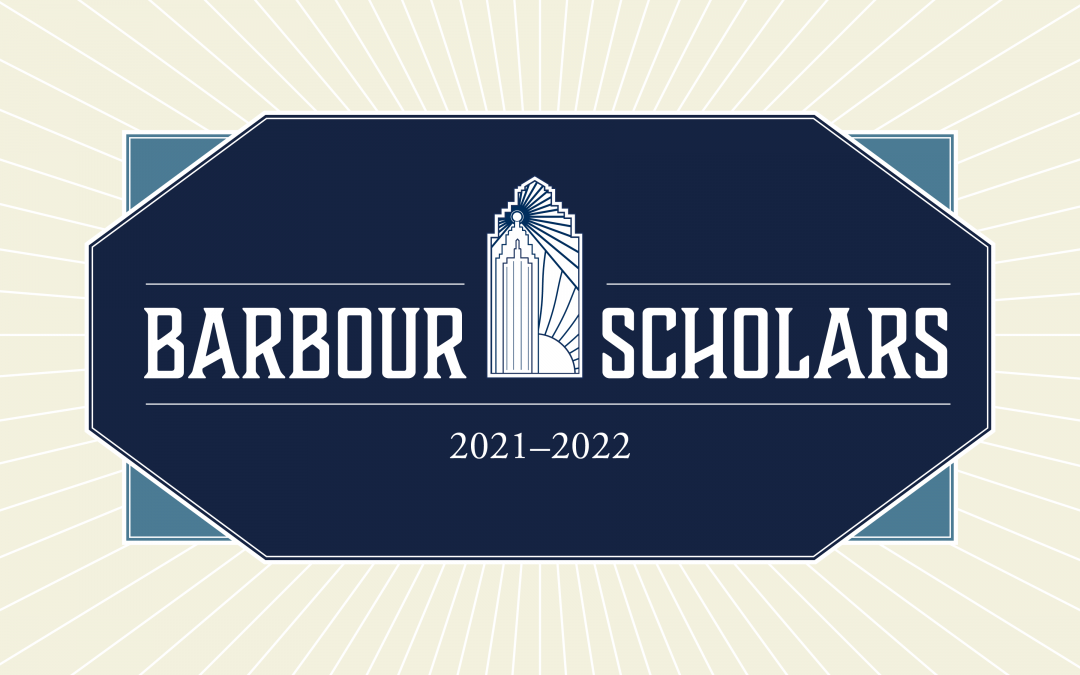We are proud to announce the 2021–2022 cohort of Barbour Scholars. These six women join hundreds of alumnae, spanning more than a century, who have traveled to Ann Arbor in pursuit of a graduate education. This award commemorates Levi Barbour’s legacy of global engagement and opportunity at the University of Michigan.
These women bring a myriad of research interests to the community and share a high level of excellence in their work. Their academic endeavors cover a breadth of topics from human-robot collaboration in the construction industry to new treatments for cognitive decline in aging people.
Rackham Graduate School welcomes the following students into the prestigious Barbour community:
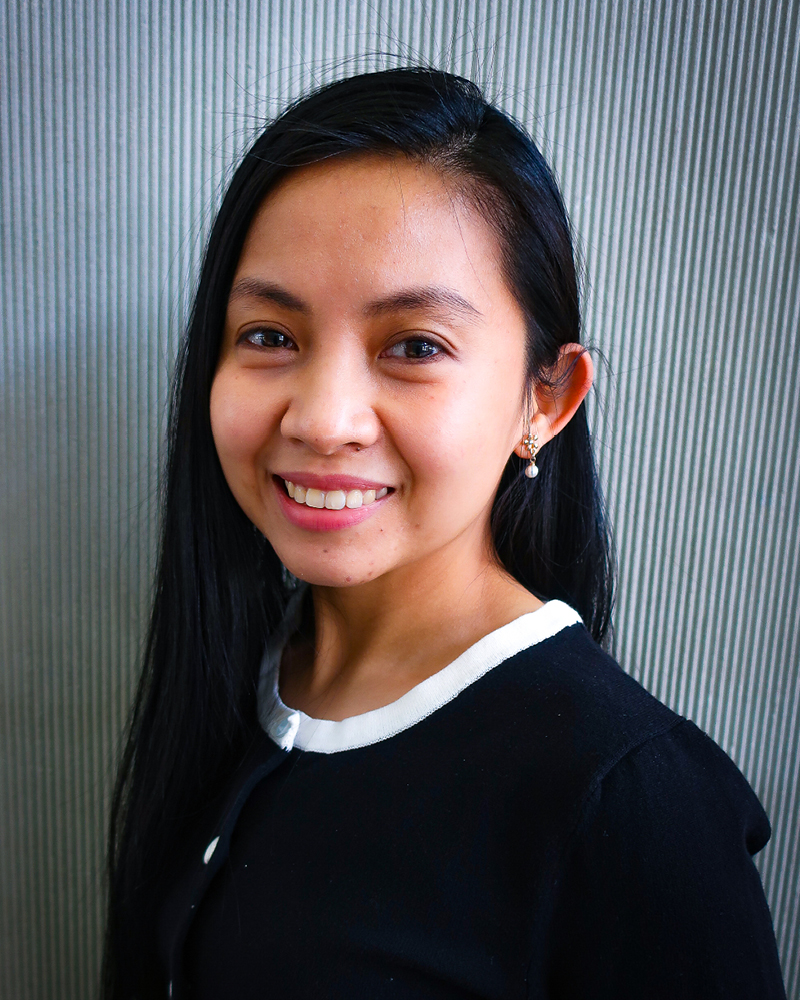
Felichi Mae (Peach) Arines
Ph.D. Candidate, Molecular, Cellular, and Developmental Biology
Membrane proteins facilitate nutrient uptake and cell signaling, yet they can be misregulated and cause disease. To maintain homeostasis amidst changing environmental conditions, membrane proteins are regulated by ubiquitin ligases (UbLs). When triggered by stress or starvation, membrane proteins are selectively recognized by UbLs and are ubiquitinated for degradation. Despite being an essential process conserved from bacteria to humans, the mechanisms governing selective ubiquitination are not well understood. In her dissertation, Felichi studies the regulation of a yeast lysine transporter Ypq1, which is recognized by a UbL adaptor Ssh4 only when cellular lysine levels are low. Through genetics, biochemistry, and structural work, she aims to understand how Ssh4 selectively recognizes Ypq1 only after lysine starvation, and if there are lysin e-dependent cues that drive this selectivity. This study will answer a fundamental question in cell biology and can generate insight for novel strategies to treat membrane protein-related diseases.
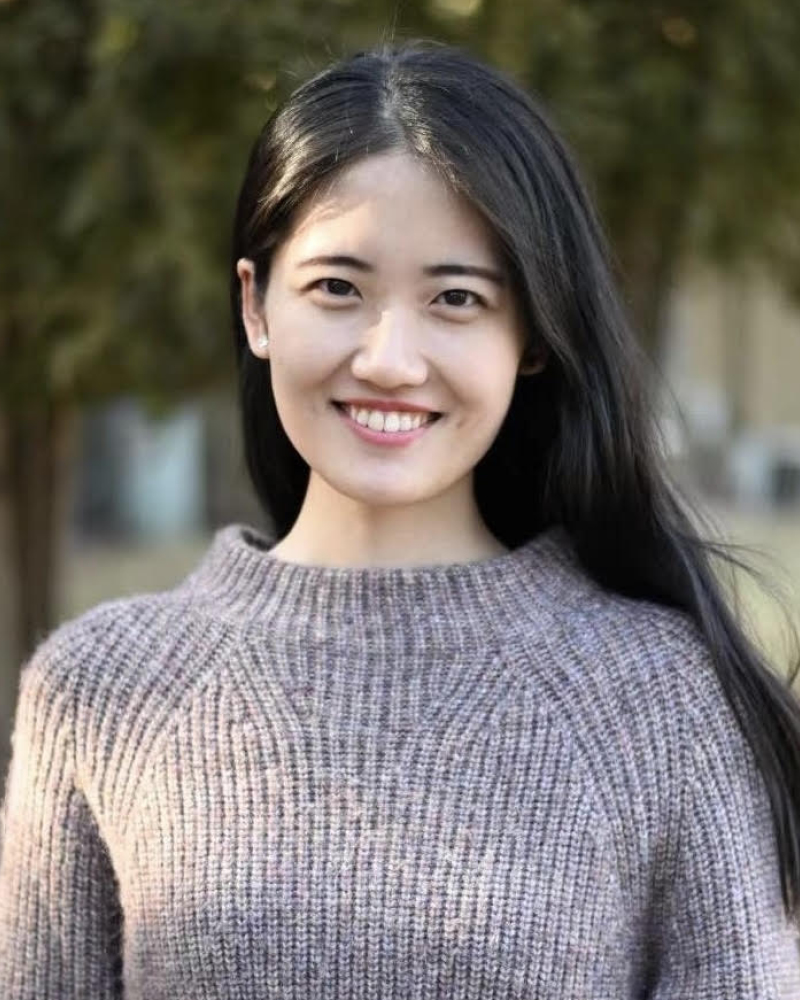
Sijia Geng
Ph.D. Candidate, Electrical and Computer Engineering
Distributed energy resources (DERs), in particular renewable resources, are witnessing substantial technology improvements and cost reductions. Large-scale integration of DERs into traditional power systems is therefore becoming technically and economically viable. Various technical challenges must be addressed, however, to achieve successful DER integration. System stability, performance and robustness are of paramount importance for power systems. Sijia’s dissertation quantifies the impacts of uncertainties introduced by renewable DERs, and develops theoretical bounds on system behavior. Such analysis is valuable for certifying satisfaction of safety specifications. Furthermore, the synthesis of safety-aware stabilizing control laws for renewable DERs is investigated, guaranteeing by-construction safety constraints. With the critical issues of stability and safety resolved, the dissertation explores opportunities offered by renewable DERs, such as provision of grid services, local clean energy supply, and interconnection of multiple energy carriers to enable reliable energy supply in rural areas.
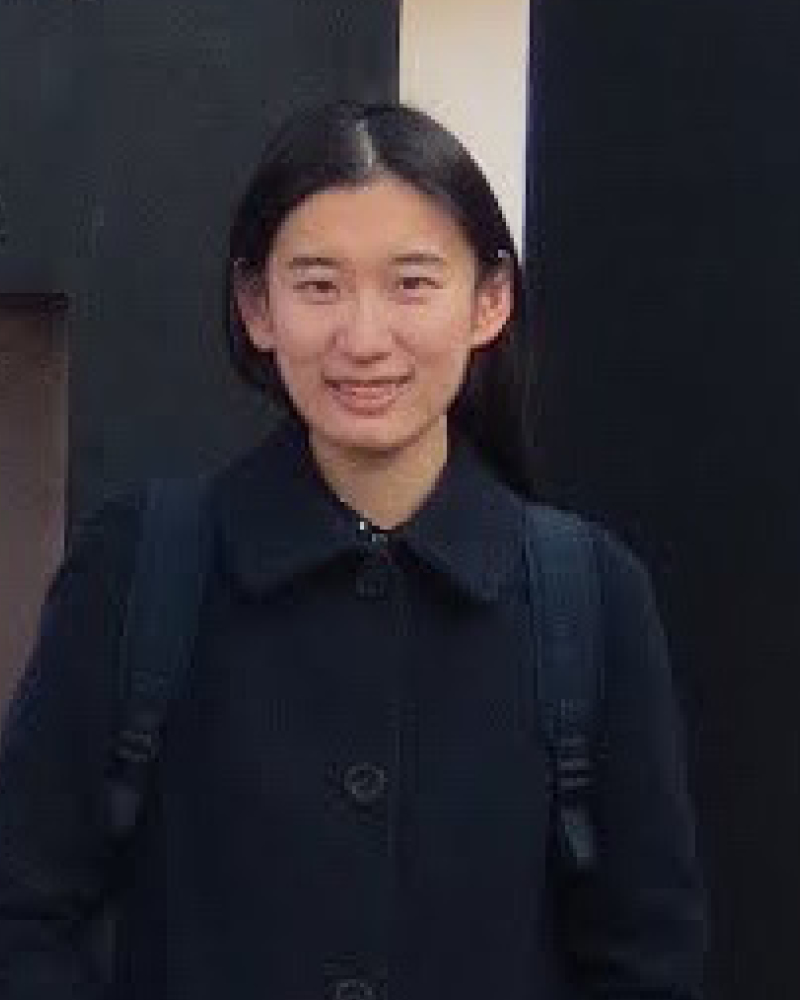
Yucong Hao
Ph.D. Candidate, Asian Languages and Cultures
Yucong’s dissertation examines the transnational making of Chinese auditory culture from 1937 to 1976—from the onset of the Second Sino-Japanese War to the end of the Cultural Revolution. The four decades, she argues, witnessed the advent of the age of sound with the global dissemination of media infrastructure, which propelled a paradigmatic shift in cultural production from print culture to sound media in modern China. This period further corresponds to the most tumultuous age in modern Chinese history of intensely fought hot wars and the global Cold War, national revolutions, and the Cultural Revolution. Together, sound technologies and revolutionary experiences informed a distinct mode of sounding and listening that she defines as “acoustics of crisis.” The concept designates artistic endeavors that experimented with the expressive and affective potentials of sound in response to cultural, political, and perceptual crises, from which subjecthood and nationhood could be formulated anew.
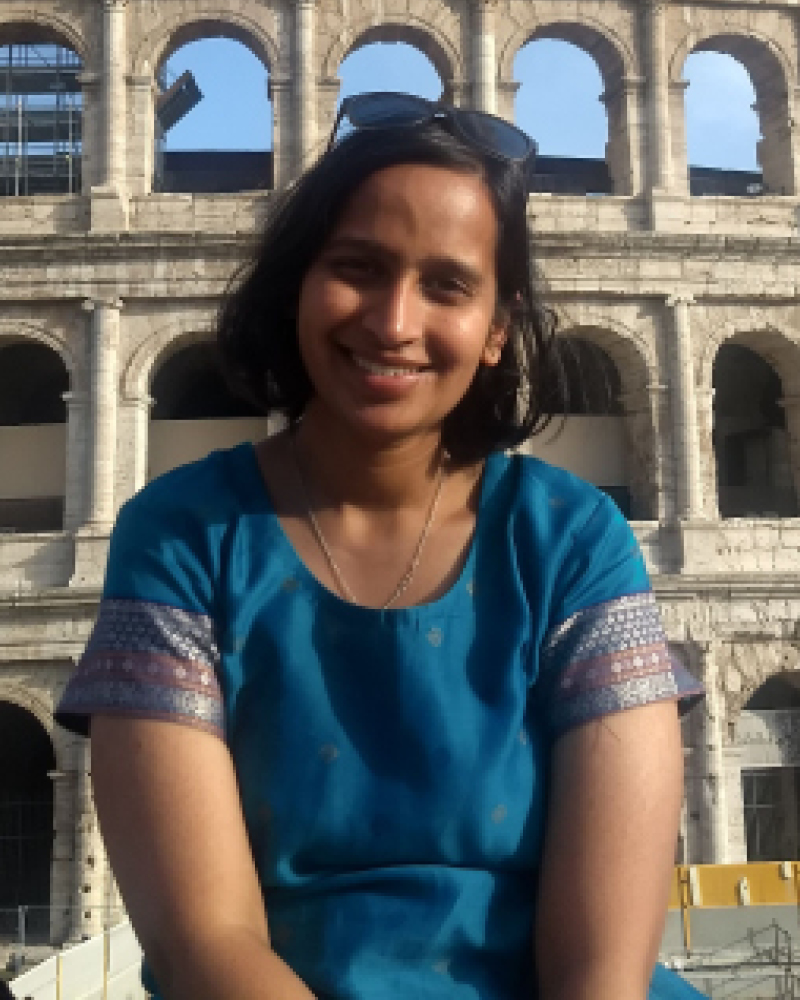
Poortata Lalwani
Ph.D. Candidate, Psychology
Normal aging is typically associated with pervasive declines in cognitive and sensory functions. However, there are individual differences: some older adults experience mild impairments while others experience severe declines. Understanding the neural bases of individual differences during aging is imperative in designing future interventions to address age-related impairments. Poortata studies cause and consequences of age-related decline in two neural factors that may play a role in these individual differences: neural selectivity (how confusable neural activity is in response to different stimulus categories) and neural variability (moment-to-moment change in neural activity). Her team is investigating 1) whether neural selectivity declines with age in the auditory cortex and if decline in inhibitory neurotransmitter (GABA) plays a role in this decline, 2) if age-related declines in neural variability can be pharmacologically reversed, and 3) behavioral consequences of age-related declines in neural selectivity and variability. This research could open new avenues for pharmacological interventions to treat cognitive decline.
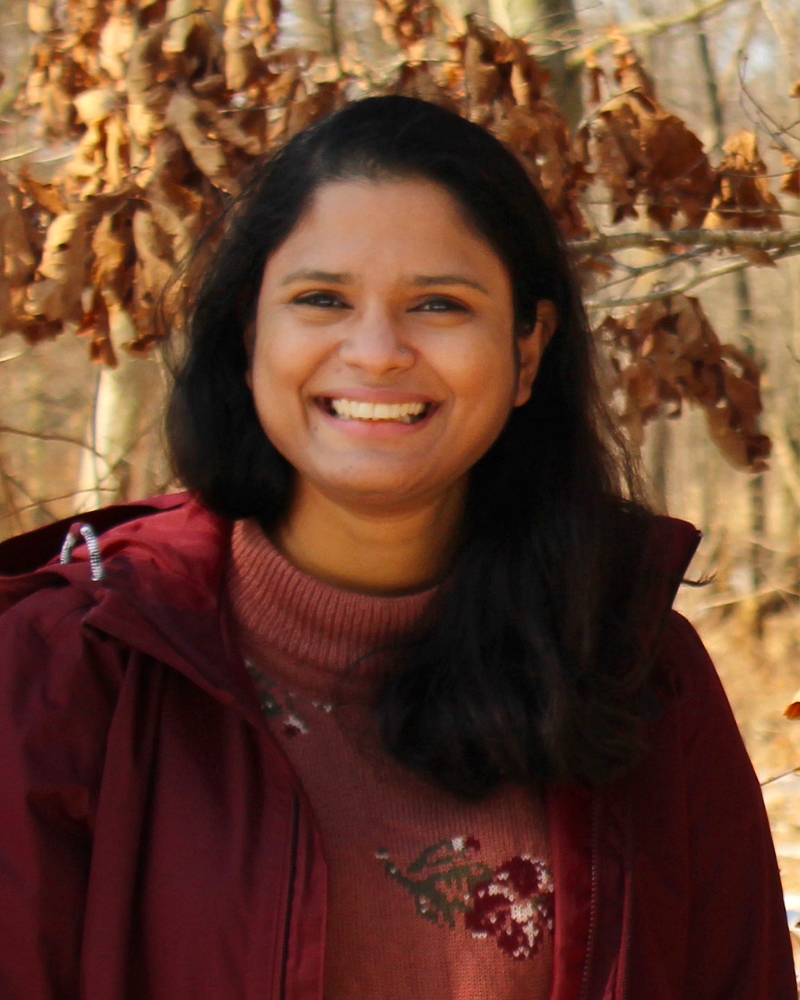
Sharmi Sen
Ph.D. Candidate, Anthropology
Male reproduction is a zero-sum game, where each fertilization gained by one male comes at another male’s expense. Thus, in social systems where females can be monopolized, natural selection tends to favor competitive and aggressive male behaviors that facilitate access to fertile females. We routinely see behaviors that are aggressive (e.g., male coercion and infanticide). But, even in the same taxa, we might also see behaviors that are affiliative (e.g., male-female friendships). In species where these two strategies co-exist, how does the “nice guy” strategy persist? Under a Darwinian framework, there must be some fitness advantage to investing in male-female relationships. Sharmi’s dissertation aims to understand the fitness payoffs (reproductive success) of varying behavioral strategies in male geladas (Theropithecus gelada), a close relative of baboons. The proposed research will uncover whether and how males from the same species can use drastically different behaviors to achieve the same evolutionary end.
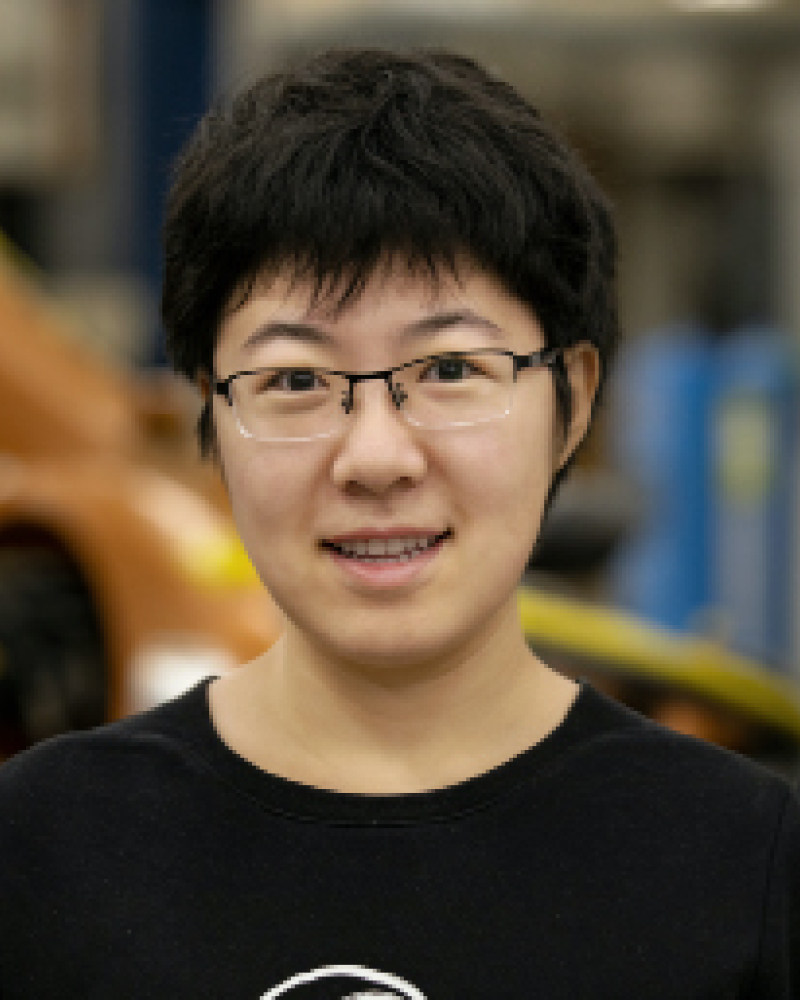
Xi Wang
Ph.D. Candidate, Civil Engineering
Human-robot collaboration offers a promising paradigm for construction robotics and can allow robots to leverage human expertise and experience to overcome workspace uncertainties and successfully perform construction work on-site. This dissertation proposes a transformative human-robot collaborative construction system to promote robot autonomy, reduce workers’ physical and mental workload, and create an inclusive and safer working environment. An immersive process-level virtual reality digital twin is developed for workers to collaborate with on-site robots remotely. Workers demonstrate construction tasks to robots, evaluate robot plans, supervise robots’ status, and intervene in robots’ activities when necessary via the immersive digital twin and natural language interaction. With the proposed interactive and immersive communication framework, robots learn to perform construction tasks from workers’ demonstration and feedback and successfully adapt to encountered workspace geometry on-site. Xi’s dissertation establishes the foundation of next-generation construction work by transitioning the role of workers from manual task performers to robot supervisors.

